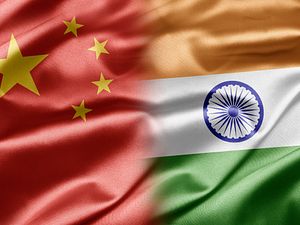India-China relations have been under enormous strain in recent years. The Indian foreign minister, S. Jaishankar, on many occasions has stated that India-China relations are going through an “extremely difficult phase.” For the two to return to normalcy in the relationship, he added that it will depend on three mutuals: mutual sensitivity, mutual respect and mutual interest. On the current status of the ties, Jaishankar remarked that “the state of the border will determine the state of the relationship.”
China appears to want a reset of ties. Chinese Foreign Minister Wang Yi stated that China is ready to work with India in improving bilateral ties. Speaking at a symposium on the international situation and China’s foreign relations in 2022, Wang reportedly said that both countries “have maintained communication through the diplomatic and military-to-military channels, and both countries are committed to upholding stability in the border areas. We stand ready to work with India in the direction toward steady and sound growth of China-India relations.”
The Chinese foreign minister’s statement comes against the backdrop of the December 9 clash near Tawang in the northeastern Indian state of Arunachal Pradesh, where soldiers on both sides sustained minor injuries. Indian Defense Minister Rajnath Singh said in the Indian Parliament that “there was hand-to-hand fighting between Chinese and Indian troops on December 9. Indian troops stopped PLA (People’s Liberation Army) troops from entering our territory.” Even though the two sides managed to bring the Tawang situation under control, the reality is that the number of forces on deployment on either side of the border after the Galwan clash two years back shows no sign of being pulled back, a stark reminder of the far-from-normal state of relations between India and China. Despite 17 rounds of military talks at the army commander level, the two sides have not been able to resolve their differences and accomplish a complete disengagement of their military forces. Following the 17th session of military talks last week, the Indian Ministry of Defense issued a statement that blandly stated that both sides will “maintain the security and stability on the ground in the Western Sector” and that they “agreed to stay in close contact and maintain dialogue through military and diplomatic channels and work out a mutually acceptable resolution of the remaining issues at the earliest.”
It is unclear if Wang’s comment on India-China relations reflects any fundamental change in China’s foreign policy. Clearly, there has been no general softening of China’s attitude. The minister’s statement on India was part of a long speech taking stock of China’s diplomacy and foreign relations in 2022. In the statement, there was a particular focus on the troubled nature of its ties with the United States, calling out Washington’s “erroneous China policy.” Wang went on to say that it was U.S. stubbornness in seeing China as “its peer competitor” and Washington’s “blatant blockade, suppression and provocation against China” that has put the relationship in “serious difficulties.” Wang also called on the U.S. to “abandon the zero-sum mentality” and “define China-US interactions by dialogue and win-win cooperation.”
Wang stressed the need to “bring China-US relations back on the right track of healthy development, under the principles of mutual respect, peaceful coexistence and win-win cooperation.” Commenting on some of the recent developments including supply chain disruptions and current efforts at economic decoupling from China, Wang said that “China and the United States cannot decouple or sever supply chains. Under new circumstances, the common interests between China and the United States have increased, not decreased. No conflict, no confrontation and peaceful coexistence are in the common interests of both countries.” Wang urged the U.S. to “honor its commitments [regarding its China policy], turn President Biden’s positive statements into action, stop containing and suppressing China, stop interfering in China’s internal affairs, stop undermining China’s sovereignty, security and development interests, and cultivate a favorable atmosphere for communication and cooperation between the two sides.”
There were also other indirect references to the United States. Making an obvious reference to the U.S., Wang said that Beijing has “not been intimidated by any hegemonic power or its bullying, and have acted resolutely to safeguard China’s core interests and national dignity,” which has Taiwan at the core of it. The minister noted Taiwan is “a red line that must not be crossed in China-US relations.” He also made note of U.S. House Speaker Nancy Pelosi’s visit to Taiwan to which the minister said that China has “taken firm and resolute measures, which have strongly deterred anti-China elements in the United States and the “Taiwan independence” forces, and fully demonstrated our iron will in safeguarding national sovereignty and security.”
The Quad, which comprises the U.S., Japan, India and Australia, also found an indirect mention in Wang’s speech. He stated that China is opposed to “bloc confrontation and zero-sum competition.” Each of India’s new security partners among the Quad countries has been subjected to China’s aggressive behavior in military, political and economic terms, which has brought a new depth of strategic purpose to the Quad. On the other hand, Wang also spoke about how China “maintained strategic stability in relations with other major countries,” with the minister adding that “major countries need to lead by example in making the world a better place.”
Such inconsistencies, both in China’s words and also between words and actions, will likely reduce the willingness of other countries, including India, to take seriously China’s statements about wanting a reset of ties. Therefore, it is unlikely that Wang’s call for efforts to rebuild smooth relations with New Delhi will find many takers in India.
































